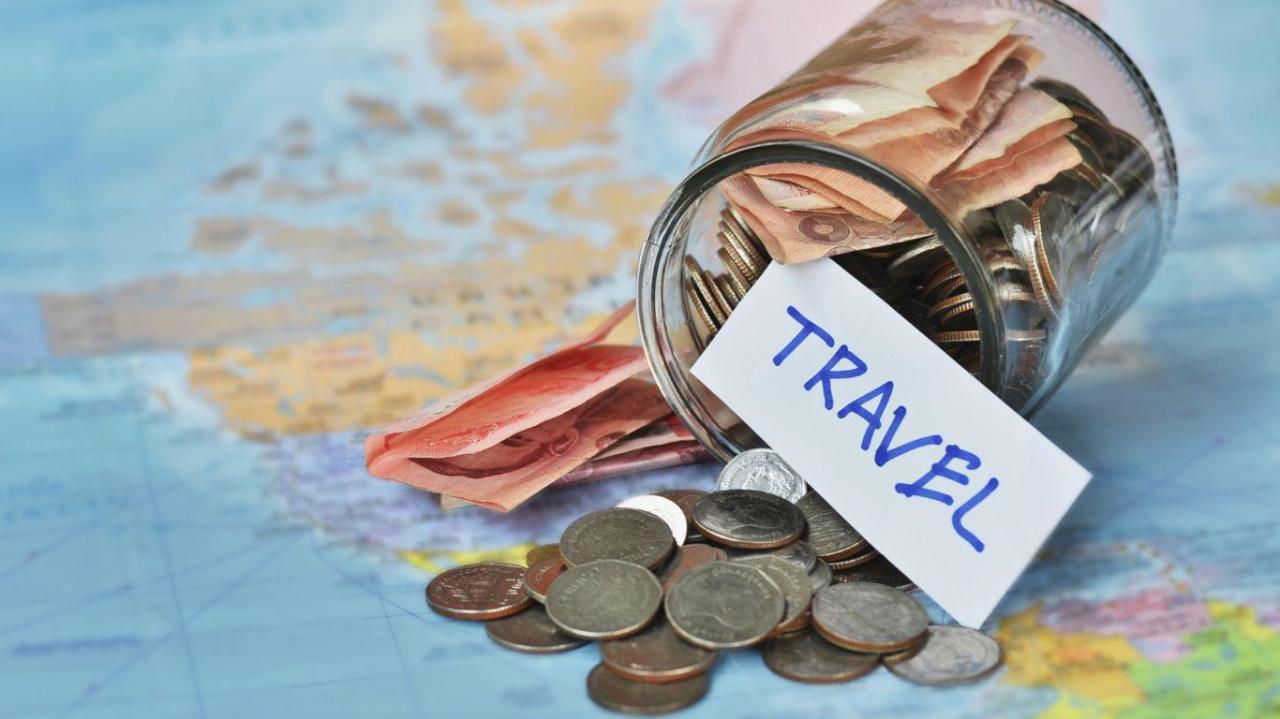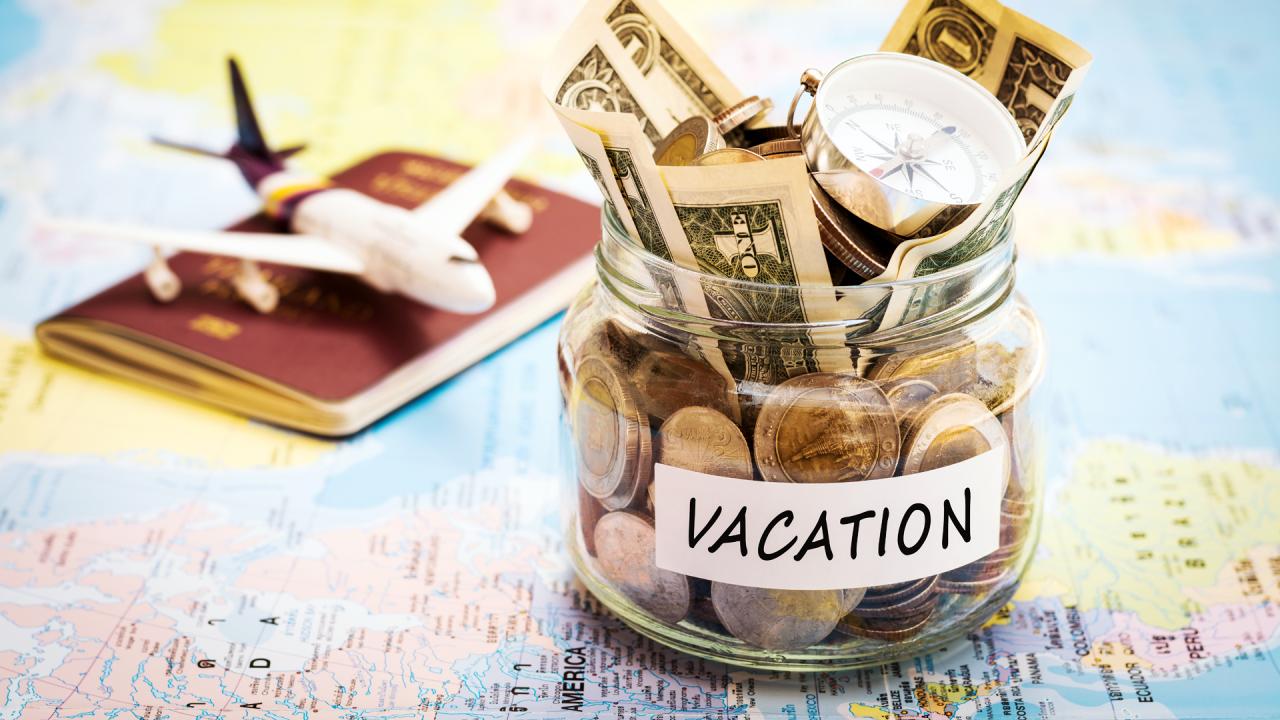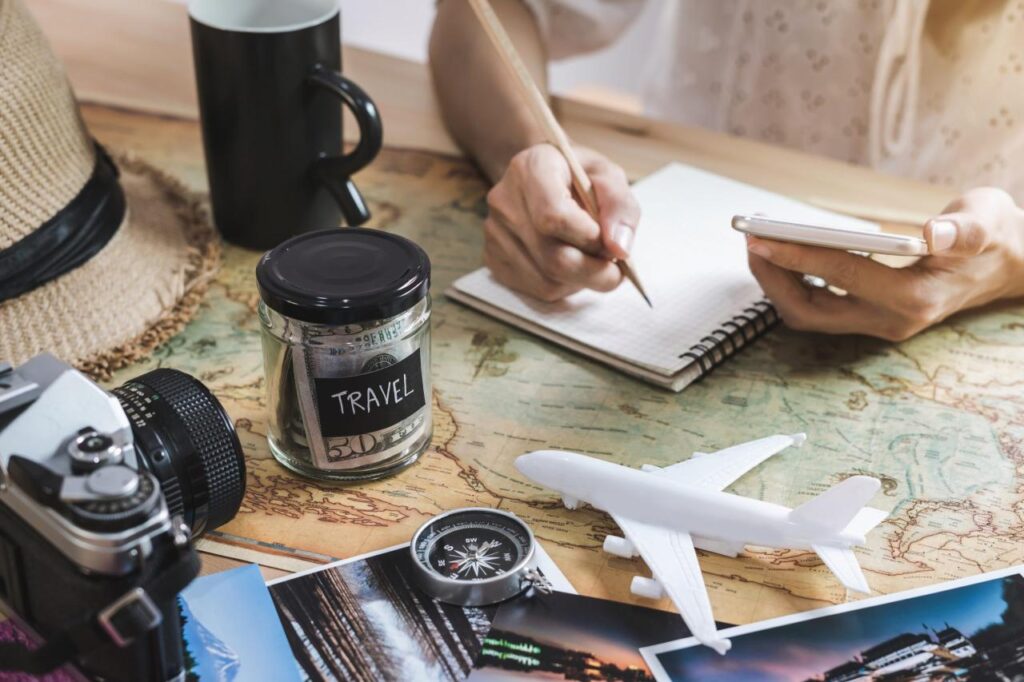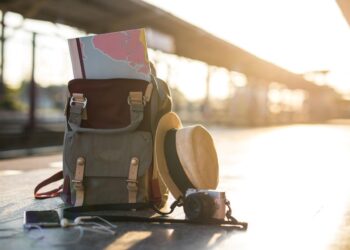The dream of travel, exploration, and rejuvenation often seems out of reach, constrained by the perception of high costs. However, with the right strategies, savvy planning, and a dose of creativity, it’s entirely possible to achieve smart escapes that deliver profound bliss without breaking the bank. This comprehensive guide will empower you to unlock the secrets of budget bliss, transforming your travel aspirations into affordable realities. We’ll delve into innovative approaches to saving, intelligent spending, maximizing value, and ensuring your getaway is rich in experience, not expenditure.
The Allure of Budget Bliss

Why is budget travel not just a necessity for some, but a preferred choice for many seeking truly authentic and liberating experiences? It offers accessibility, flexibility, and a deeper connection to the world.
A. Democratizing Travel: The primary appeal of budget travel is its inclusivity. It opens up the world to a wider audience, proving that transformative experiences are not exclusive to those with large disposable incomes. Anyone with a desire to explore can find a way.
B. Fostering Authenticity and Immersion: Budget travelers often find themselves in local markets, using public transport, staying in guesthouses, and eating street food. This inadvertently leads to more genuine interactions and a deeper immersion in the local culture, far from the insulated bubble of luxury tourism.
C. Cultivating Resourcefulness and Resilience: Navigating travel on a budget sharpens problem-solving skills, encourages adaptability, and builds resilience. You learn to be creative with limited resources, find alternative solutions, and handle unexpected situations with greater ease. These are invaluable life skills.
D. Enhancing Appreciation and Gratitude: When every dollar counts, you tend to be more mindful of your choices and more appreciative of the experiences you gain. The simple joys of a beautiful view, a delicious local meal, or a friendly interaction become even more meaningful.
E. Enabling Longer and More Frequent Escapes: By reducing the cost per day or per trip, budget travel allows for extended stays in a destination or more frequent getaways throughout the year. This means more opportunities for exploration and rejuvenation.
Saving Smart for Your Escape
The journey to budget bliss begins long before you pack your bags. Strategic saving and smart choices in the planning phase are paramount.
A. Define Your “Budget Bliss” Vision:
1. Prioritize Experiences: What truly matters to you on this escape? Is it a specific activity, a cultural immersion, or just relaxation? Identify your non-negotiables and areas where you can compromise.
2. Realistic Budget Setting: Based on your priorities, research typical costs for your desired destination and set a realistic, but frugal, daily or total budget. Be specific.
3. Duration vs. Depth: Decide if you prefer a shorter, more intense experience or a longer, slower journey, as this impacts daily spending.
B. Optimize Your Travel Savings:
1. Dedicated Travel Fund: Set up a separate savings account specifically for your escape and automate transfers into it. “Out of sight, out of mind” can accelerate savings.
2. Cut Unnecessary Expenses: Audit your daily spending. Identify areas where you can cut back, even temporarily (e.g., fewer coffees out, cooking at home more, cancelling unused subscriptions).
3. Side Hustles/Extra Income: Consider temporary part-time work, freelancing, or selling unused items to boost your travel fund.
C. Intelligent Flight and Transportation Booking: Often the largest expense, so be strategic.
1. Flexibility with Dates: Be open to traveling during shoulder seasons (just before/after peak) or off-peak times for significantly lower fares. Weekday travel is often cheaper than weekends.
2. Airline Deal Alerts: Sign up for email alerts from flight aggregators (e.g., Skyscanner, Google Flights, Kayak) and specific airlines.
3. Compare Airports: Check prices to and from alternative, smaller airports near your destination, which might offer cheaper flights.
4. Consider Layovers: Direct flights are convenient but often more expensive. A flight with one or more layovers can significantly reduce costs.
5. Public Transport at Destination: Plan to use local buses, trains, or subways rather than taxis. Research public transport passes for tourists.
6. Walking/Cycling: Embrace walking or renting a bicycle as cheap, healthy ways to explore and get a different perspective.
D. Savvy Accommodation Choices: Where you sleep can make or break your budget.
1. Hostels: Ideal for solo travelers or groups, offering affordable dorms and private rooms, plus social opportunities and often free amenities (Wi-Fi, breakfast).
2. Guesthouses/Homestays: Often run by locals, providing a more authentic experience at a lower price than hotels.
3. Vacation Rentals (Airbnb, VRBO): Can be cost-effective for families or longer stays, allowing for self-catering. Look for locations slightly outside the main tourist hub.
4. Couchsurfing/House-sitting: For the adventurous and truly budget-conscious, offering free accommodation and deep local immersion. Requires vetting and trust.
5. Camping: For nature lovers, campsites offer very low-cost accommodation in scenic locations.
E. Strategic Visa and Travel Insurance: Essential costs that can’t be skipped.
1. Visa Research: Understand visa requirements and costs for your destination well in advance. Some countries offer visa-on-arrival or e-visas which can be cheaper.
2. Travel Insurance Comparison: Do not skip travel insurance for budget trips. Compare policies from different providers to find one that covers medical emergencies, trip interruptions, and baggage loss at a reasonable price. Look for policies specifically designed for budget or long-term travelers.
Maximizing Value on the Go

Once you’re on your escape, smart spending habits and mindful choices will ensure you stick to your budget and enhance your experience.
A. Food: Eating Like a Local, Spending Less: Food is a significant daily expense.
1. Street Food and Local Markets: Embrace vibrant street food stalls and local markets for delicious, authentic, and incredibly cheap meals.
2. Cook Your Own Meals: If your accommodation has a kitchen, buy groceries and cook some of your meals. This is often far cheaper than eating out.
3. Picnics: Grab ingredients from a local supermarket and enjoy a picnic in a park or by a scenic spot.
4. Avoid Tourist Traps: Restaurants in major tourist areas are usually overpriced and offer lower quality food. Venture a few blocks away for better value and authenticity.
5. Free Breakfast: Book accommodations that include free breakfast to save on your first meal of the day.
B. Activities: Free and Low-Cost Experiences: You don’t need to spend a fortune to have incredible experiences.
1. Walking Tours: Many cities offer free walking tours (tip-based) that provide a great introduction to the area.
2. Parks and Green Spaces: Explore local parks, botanical gardens, and scenic viewpoints which are often free or have minimal entrance fees.
3. Free Museums/Galleries: Research museums and art galleries that offer free admission, or specific free entry days/hours.
4. Local Events: Check local listings for free concerts, festivals, parades, or community events happening during your visit.
5. Self-Guided Exploration: Create your own walking routes, discover hidden gems, and simply soak in the atmosphere of a place.
C. Smart Spending and Saving Habits:
1. Track Your Expenses: Use a simple notebook, a spreadsheet, or a budgeting app to track every expense. This keeps you aware of your spending.
2. Negotiate (where appropriate): In many cultures, negotiation is common in markets or for certain services. Do so respectfully and with a smile.
3. Avoid ATM Fees: Use fee-free ATMs if possible. Withdraw larger sums less frequently to minimize transaction charges. Research your bank’s international fees.
4. Forex Cards/No-Fee Credit Cards: Consider using specialized travel money cards or credit cards that offer no foreign transaction fees.
5. Reusable Items: Carry a reusable water bottle (refill from safe sources), a reusable shopping bag, and your own toiletries to save money and reduce waste.
D. Communication and Connectivity on a Budget:
1. Local SIM Card: Purchase a local SIM card upon arrival for affordable data and calls. This is usually much cheaper than international roaming.
2. Free Wi-Fi: Utilize free Wi-Fi in cafes, hostels, and public spaces for connectivity. Download offline maps and essential information before leaving your Wi-Fi zone.
E. Shopping and Souvenirs:
1. Local Markets: Buy souvenirs directly from local markets or artisans for better prices and more authentic items, supporting the local economy directly.
2. Experiences over Things: Prioritize spending on memorable experiences rather than tangible souvenirs. The memories last longer.
3. Haggling (where customary): Practice polite bargaining in places where it’s culturally accepted, but always do so respectfully.
Lasting Bliss from Budget Escapes
The bliss from your smart escape doesn’t end when you return home. Thoughtful post-trip integration can extend its positive effects and prepare you for future adventures.
A. Reflect on Your Budget Bliss Learnings:
1. Review Your Budget: Compare your actual spending against your planned budget. What worked well? Where could you improve next time?
2. Journal Your Insights: Write down not just what you did, but how the budget aspect influenced your experience, what you learned about resourcefulness, and unexpected joys.
3. Celebrate Your Achievements: Acknowledge your ability to travel smartly and make the most of your resources.
B. Share Your Smart Escape Stories (and Tips):
1. Inspire Others: Share your experiences with friends and family, demonstrating that amazing travel doesn’t require a huge budget.
2. Contribute to Communities: Share your tips and tricks on travel forums, blogs, or social media to help other aspiring budget travelers. Your insights are valuable.
3. Create Content: If you enjoy writing or photography, consider creating a blog or social media content focused on budget travel. This can even become a source of passive income (like Google AdSense), fueling future escapes!
C. Apply Budgeting Skills to Daily Life:
1. Maintain Frugal Habits: Many of the money-saving habits you adopted for your trip (e.g., cooking at home, public transport) can be integrated into your daily life to boost your overall financial health.
2. Mindful Spending: The awareness of where your money goes, honed during your budget escape, can make you a more conscious consumer in general.
D. Start Planning Your Next Budget Bliss Adventure: The best way to keep the spirit of travel alive is to plan for the next one.
1. Keep a “Dream List”: Maintain a running list of affordable destinations or experiences you want to explore.
2. Leverage Lessons Learned: Apply insights from your last escape to refine your planning and execution for your next adventure.
3. Automate Savings Again: Get back into the habit of transferring money into your dedicated travel fund.
Conclusion
The notion that impactful travel requires vast wealth is a myth. By embracing strategic planning, adopting savvy spending habits, and prioritizing authentic experiences over unnecessary luxury, you can unlock a world of smart escapes that deliver profound budget bliss. This approach not only makes travel accessible but also enriches the journey itself, fostering resourcefulness, appreciation, and a deeper connection to the places and people you encounter. So, stop waiting for that lottery win. Begin implementing these strategies today, and discover how truly liberating and enriching it is to explore the world on your own terms, without financial burden. Your next unforgettable adventure awaits, and it’s surprisingly affordable.







